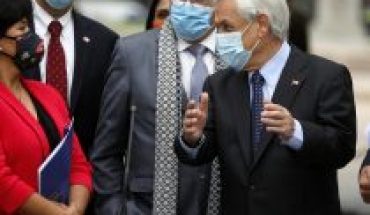
The director for the Division of the Americas of Human Rights Watch (HRW), José Miguel Vivanco referred to the situation of Carabineros, after last Friday an officer of the institution led to the fall of a teenager on the Pius Nono Bridge during a demonstration, for which the cash was put in pre-trial detention.
In this regard, he considered that “the problem is profound, it is serious, and it seems to me that all those who have been involved with Carabineros in recent years — I dare say 30 years, from the government of Aylwin onwards, and I am thinking of successive ministers and undersecretaries of the Interior — know the gravity and depth of the problem.”
A possible cover-up of the institution’s fact is also investigated. In that sense, Vivando said in conversation with 24 Hours that “Carabineros is an institution that tends to respond corporately to such complaints. That means that the usual temptation is, unfortunately, the cover-up. Where such complaints exist, unfortunately there is no attitude of full transparency and facilitating investigations and handing over all documentation and material to the competent authorities. There is resistance in that sense.”
The HRW director further argued that “the carabinieri who were there could not argue that they did not know, that they were unaware of, that circumstance, and simply did not provide him with the slightest relief. The images show that the vast majority of them, but all of them, practically flee the place, which seems to me, from the point of view of what the professional public force did, is very revealing of the lack of mechanisms, of respect for elementary protocols in circumstances like this.”
Concrete reforms
For José Miguel Vivanco, “the constitutional process that opens in Chile, if most Chileans approve, will allow us to rething very seriously what carabineros’ role is in a democratic society in the 21st century”.
In addition, he noted that “if there is no effective control of police forces in Chile, unfortunately these abuses will continue and that is the urgent thing to do. For me we must distinguish between what is absolutely urgent and immediate — as is progress in reforms — with some proposals that can also be perfectly valid, legitimate and necessary, but which are obviously going to take the longest time, as is a much deeper look at what is the need to recast a police force prepared to serve society.”
“Unfortunately, there is historic resistance on the part of Carabineros’ senior management to enable effective control by political authorities in Chile.” “I have almost no doubt about that, because it is a subject that we have been observing for several decades now and we have seen this rejection, that attitude where Carabineros is hardly subordinated to the approaches, to the requirements of the political authorities,” he added.





